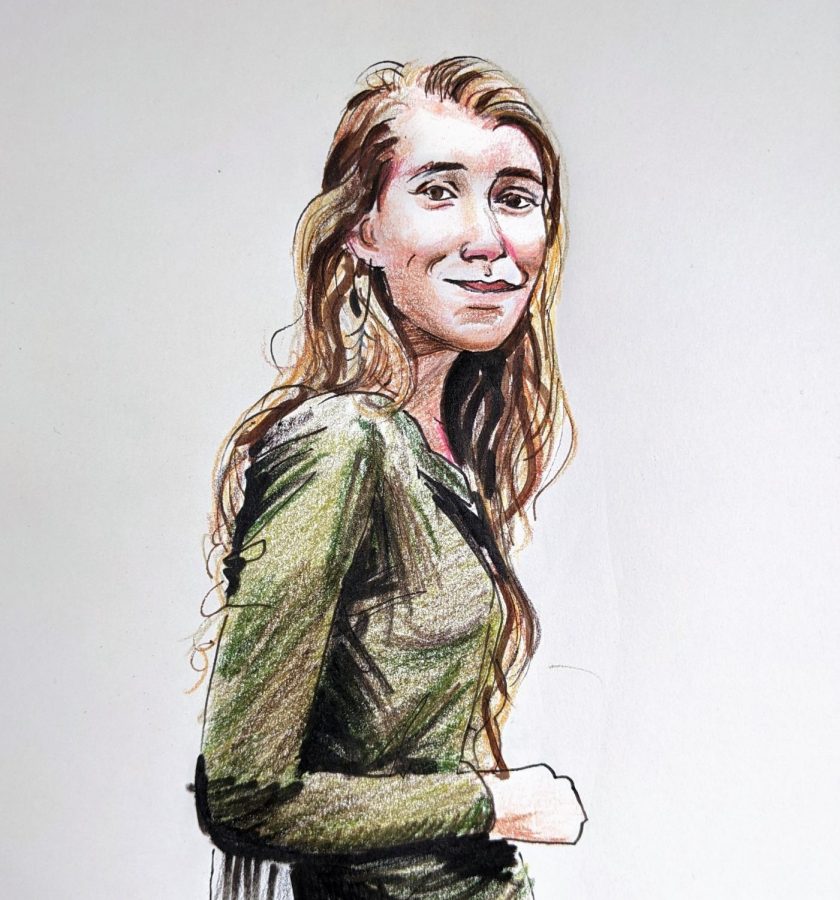Williamson’s got a way with words
March 19, 2021
What better way to celebrate women’s history month than by celebrating women writers? Corrie Williamson, a Montana-based poet, visited Linfield via Zoom to share her most recent collection with Professor Wilkins’s class this week.
Williamson was born in a small town in southwest Virginia and has won a variety of awards and honors for her two collections. She has also taught writing at the University of Arkansas, Helena College, and Carroll College. For a while, she worked as an educator in Yellowstone National Park.
She focuses a lot of her work on nature and specific places, basing her pieces on areas where she grew up or has once lived. She read her most recent collection to the class, The River Where You Forgot My Name, sharing a few poems she doesn’t get to read out loud that often. It made our class feel pretty special.
Poetry sounds different when read out loud, especially by the poet themselves. It helps put into perspective how and what she writes about.
“On the Cancer,” “Strange Things That Animals Do,” and “Chestnut Sabbath” are few that I would highly recommend reading. These poems evoke powerful emotions and focus on themes that are not normally seen in poetry.
“Chestnut Sabbath,” for example, focuses on the deforestation of chestnut trees through the midwest. Williamson told us that the area where she grew up used to be full of these trees, but over time they were cut down, changing the landscape almost entirely. She wanted the trees to live on through her writing.
“This poem is very much about the way that time makes so many things possible that seem impossible,” Williamson said about “Chestnut Sabbath.”
She brings the natural world to life through imagery and voices, but the voices she uses are not always her own.
In her most recent work, The River Where You Forgot My Name, she juxtaposes her own voice with the voice of Julia Hancock, famously known as the young wife of Willam Clark. Williamson was born in the same town as Hancock, and she has always felt a connection to her by seeing parallels within her own life.
Meriwether Lewis and William Clark were famous figures in the United States for their exploration and westward expansion, but Williamson feels that their stories are deeper than what we normally learn in history class.
“We are always asked about these guys, very rarely they ask us about the women in the background,” she said.
Male-dominated history in the west was something that she wanted to write against, she said to our class. Williamson’s visit was in perfect tandem with Women’s History Month to highlight the contributions of women to events in history and contemporary society.
Willamson read through the Lewis and Clark journals to prepare her Julia Hancock narrative, and to get a feel for how to write in that style. In The River Where You Forgot My Name, she breaks between sections where she is writing in her own voice, versus in Julia Hancock’s voice.
She told the class that she wanted the sections about Hancock to feel like journal entries as if they were “snagged from me and pinned on the page,” Williamson said. Williamson used a tighter and more slim form when writing with the voice of Hancock, to demonstrate the journal entry style.
Williamson captured a woman’s perspective during the 1800s well and brought Julia Hancock to life from her own little cabin in Montana–where Hancock had also lived. The Lewis and Clark expedition has a new meaning now that the voice of Julia Hancock can finally be heard.
Female voices are powerful no matter what time period and no matter how hidden they may be in history, and Corrie Williamson is a great example of a great woman’s voice.

